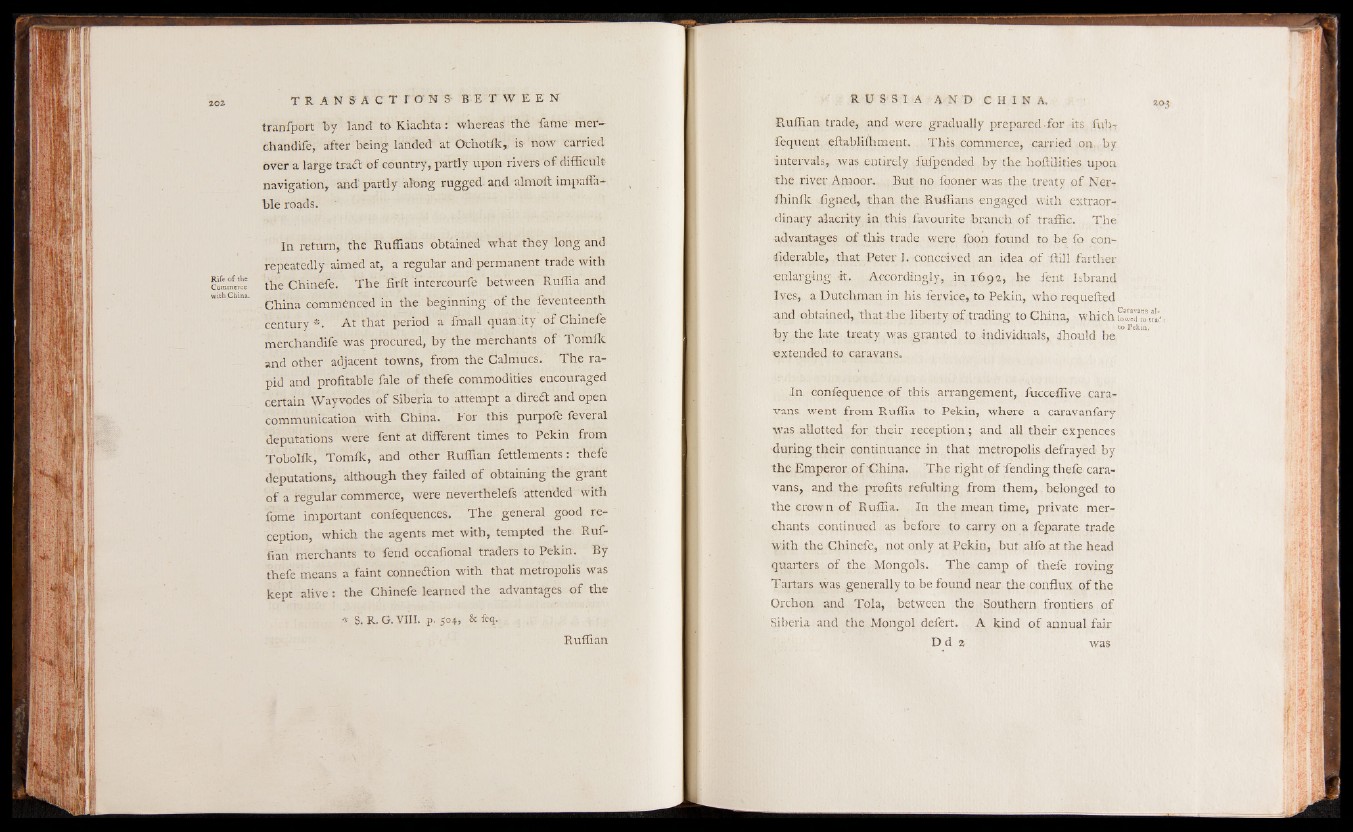
Rife o f the
Commerce
with China.
tranfport by land to Kiachta: whereas thé fame mer-
chandifè, after being landed at Ochotfk*. is now carried
over a large tradf of country, partly upon rivers of difficult
navigation,, and partly along rugged, and almolt impafla-
ble roads.
In return, the Ruffians obtained what they long and
repeatedly aimed at, a regular and permanent trade with
the Chinefe. The firft intercourfe between Ruffia and
China commenced in the beginning of the feventeenth
century V. At that period a fmall quantity of Chinefe
merchandife was procured, by the merchants of Tomflc
and other adjacent towns, from the Calmucs. The rapid
and profitable fale of thefe commodities encouraged
certain Wayvodes of Siberia to attempt a diredt and open
communication with China. For this purpofe feveral
deputations were fent at different times to Pekin from
Tobolfk, Tomfk, and other Ruffian fettlements: thefe
deputations, although they failed of obtaining the grant
of a regular commerce, were neverthelefs attended with
fome important confequences. The general good reception,
which the agents met with, tempted the. Ruffian
merchants to fend occafional traders to Pekin. By
thefe means a faint connection with that metropolis was
kept alive: the Chinefe learned the advantages o f the
* S. R. G. VIII. p. 504, & feq.
Ruffian
Ruffian trade, and were gradually prepared for its fiib-
fequent eftablifhment. This commerce, carried on by
intervals., was entirely fufpended by the hoftilities upon
the river Arnoor. But no fooner was the treaty of Ner-
fhinfk .figned, than the Ruffians engaged with extraordinary
alacrity in this favourite branch of traffic. The
advantages of this trade were foon found to be fo con-
diderable, that Peter I. conceived an idea of ftill farther
enlarging -it. Accordingly, in 1692, he fent Isbrand
Ives, a Dutchman in his fervice, to Pekin, who requefted
and obtained, that the liberty of trading to China, which S w i ,
- . , _ to Pekin. toy the late treaty. was granted to individuals, iliould be
extended to caravans.
In eonfequence o f this arrangement, fucceffive caravans
went from Ruffia to Pekin, where a caravanfary
was allotted for their reception ; and all their expences
during their continuance in that metropolis defrayed by
the Emperor o f -China. The right of fending thefe caravans,
and the profits refulting from them, belonged to
the crown of Ruffia. In the mean time, private merchants
continued as before to carry on a feparate trade
with the Chinefe, not only at Pekin, but alfo at the head
quarters of the Mongols. The camp of thefe roving
Tartars was generally to be found near the conflux of the
Orchon and Tola, between the Southern frontiers of
Siberia and the Mongol defert. A kind of annual fair
Dd 2 was